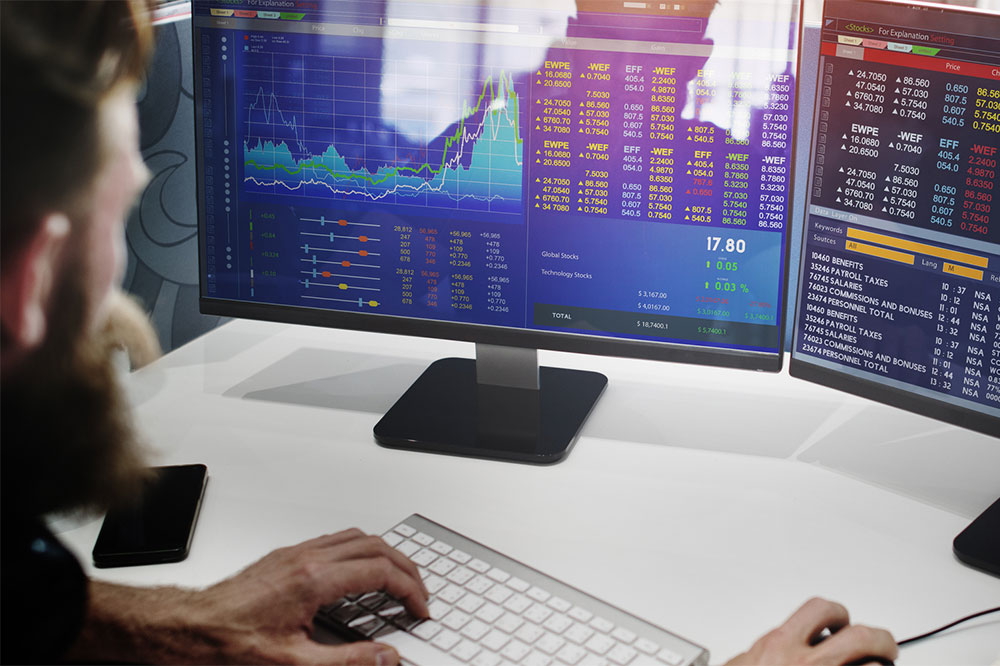Things to know about commodities and futures trading
Commodities are a significant aspect of everyone’s daily life. Some classic examples include gold, oil, natural gas, and grains. Commodities can be defined as basic goods that are interchangeable with goods of the same type. The worldwide economy is powered by raw materials such as crude oil, precious metals, and iron ore. The selling and buying price is usually determined by the “futures contract,” which is defined as an agreement between the buyer and seller.
Types of commodities
There are primarily four types of commodities, these are:
- Metals
This includes precious metals such as gold, platinum, silver, and palladium and industrial metals such as iron ore, zinc, tin, copper, and aluminum.

- Energy
This includes coal, natural gas, ethanol, oil, and uranium. It also includes renewable energy, such as solar power and wind power.
- Livestock
This category includes all live animals such as cattle.
- Agricultural products
It covers edible and non-edible goods. The edible goods include grain, wheat, sugar, and cocoa and the non-edible goods include rubber, cotton, and palm oil.
Commodities are volatile
The commodities and futures trading market is not like the stock market and is volatile. If you are looking for a steady and stable market price, you must avoid trading in the commodities market. The volatility of the commodities market is not new for experienced traders.
Commodity trading body
The largest trading exchange for commodities and futures trading is the Chicago Mercantile Exchange. Almost 80% of the trade is done online, but 20 % of the trade happens through open outcry. It all depends on the call-out price, orders, and quantity.
Correlation with dollars
Since traders use dollars to trade commodities worldwide, it is more sensitive to the fluctuation in the dollar value. Therefore, one of the factors to be considered for commodities trading is fluctuation in the dollar price.
Liquidity
Liquidity depends and varies on the commodities you trade. Usually, non-agro commodities, such as gold, copper, and silver, have high liquidity, while some agricultural commodities, such as soybean and mustard, have higher participation.
Margins
Margins may get higher than usual at times. For example, non-agro commodities and futures trading is expected to have a 5-10% margin on average. A significant margin is expected when the market is volatile.
Commodities futures
It is the most common way to trade commodities. Here, you need to agree with another investor based on the commodity’s future price. There is a need to set up an account with a specialty brokerage account that offers this type of trading.
Portfolio diversification
The commodities and futures trading market and the stock market share an inverse relationship. Therefore, splitting your investments in these two markets can lead to proper portfolio diversification. There are many easy and convenient ways to diversify your portfolio, such as investing in digital gold.
Trading hours
The extended trading hours allow the buying and selling of commodities beyond the usual or general trading hours. This means it could be after or before the market hours. It allows increased and enhanced convenience to the part-time traders and keeps the global markets at par. It also offers faster responses to critical news impacting commodity prices. But it also has some cons, such as investors may not get the best prices during the extended hours.
Should you invest in the commodities?
This question may come to the minds of many investors. However, before commodities and futures trading, you must carefully understand and learn about commodity price charts. You must gain other knowledge about the commodities market and explore and research well. It would be best if you had a high-risk tolerance as the market price moves could result in high gains and losses. Also, investing in commodities should be a small portion of your total portfolio. Investing in commodities requires a thorough understanding of the global market and prioritizing and planning.
These are just some of the details that you should know about commodities and futures trading. To invest in this market, gaining proper and complete knowledge is necessary. Therefore, speaking to a financial advisor is recommended. The financial advisor will help you in choosing the right commodities. It is also advisable to learn to diversify your portfolio. Even though only investing in one kind of sector may seem tempting, it may not be wise. A financial advisor would be able to help you understand this concept better to yield maximum profits.

